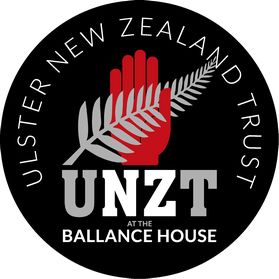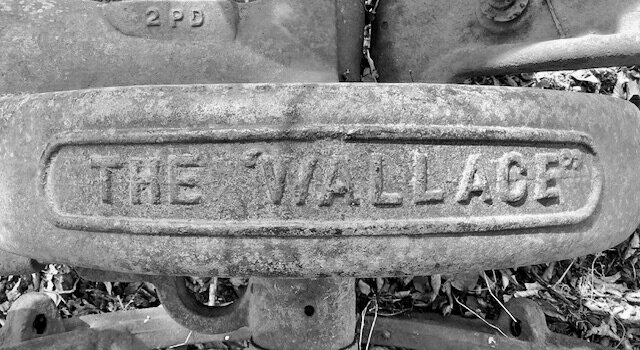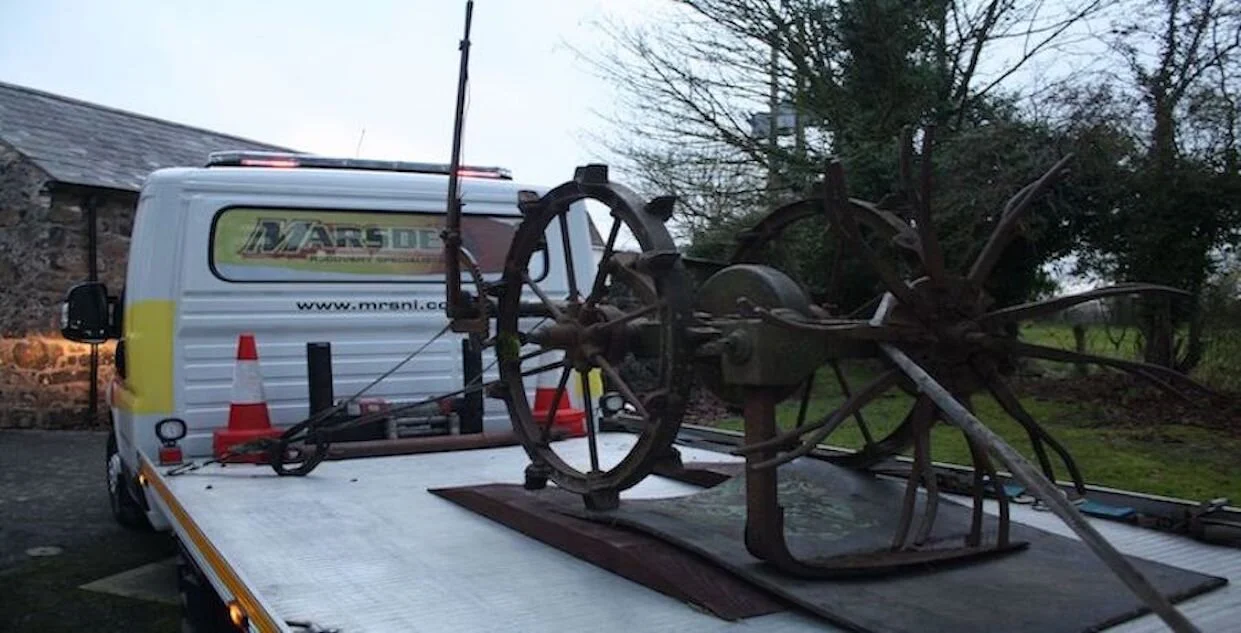Generously donated to the UNZT Ballance House by David Nesbitt of Larne this is 'The Wallace' potato spinner manufactured by John Wallace & Sons Ltd of Glasgow, Scotland.
Mr nesbitt and the potato spinner
delivery day
Freely transported by Marsden Recovery to The Ballance House in 2017 this type of potato spinner would have been in use on most local farms for over a century. Many starting out pulled by one horse and later by a wee grey Ferguson tractor or a Fordson Major.
Glasgow Manufacture
In business since 1865 John Wallace & Sons Ltd was a family firm manufacturing agricultural equipment popular across the British Isles and beyond. However by the 1960s the business was in terminal decline. A once innovative engineering firm had failed to keep up with modern market demands.
This simple, but very efficient machine pulled by a horse had a bar that slid under the ridge of potatoes with the spinner then throwing the tubers out to be lifted by a gang of hand pickers carrying wire baskets.
Hard on the back work that led to children in most of Ulster and Scotland being granted a week or fortnight of potato gathering holidays to help with the harvest. A break from the books that was a change of routine, but hardly a holiday.
Tattie hoking holidays
In wartime and the ration book days that followed many gangs of potato pickers were brought out of towns, offices, factories and prisons to help harvest this vital food crop. The development in the 1960s of potato harvesters that lift the crop onto pallets brought an end to October 'tattie hoking holidays,' potato picking holidays.
Ware & Seed
Potato growing was once part of virtually every lowland farm business and a source of family food year round. Two types of potato growing enterprises were important in Scotland and Ulster. Ware potatoes for human and animal consumption and seed potatoes bred and produced for sale to ware growers at home and abroad. Varieties such as British Queen bred in 1894 by Scotsman Archibald Finlay remain popular with consumers.
Seed potatoes, like flax and grass seed crops such as Italian ryegrass, were often the only cash crop on local farms. All three enterprises in NI failed to compete as regards consistent quality and marketing expertise so had largely disappeared by the 1960s. Where once NI seed potatoes were exported as far afield as Cyprus now local ware growers must source seed outside the province!
Ware potato growing has become a much more sophisticated enterprise with many producers closely linked to innovative processing and marketing companies. For example, Wilson Country of Craigavon, Glens of Antrim Potatoes at Cushendall and, of course, Tayto Crisps NI Ltd of Castle Tayto, Tandragee. The third largest potato crisp maker in the UK!
Rather than part of most farming businesses growing potatoes, seed or ware, has become a specialist enterprise in areas such as Kilkeel, Fife, Angus and Lincolnshire.
Reference: Footsteps in the Furrow by Andrew Arbuckle, Old Pond Publishing.









